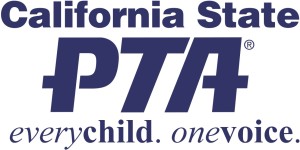Download the Treasurer Job Description
Key Role – Treasurer
- Maintains permanent records to track unit funds and financial transactions
- Chairs budget committee and prepares annual budget for adoption by the association
- Pays all PTA bills as authorized by board or association
- Prepares reports for every board and association meeting and an annual financial report
- Ensures taxes and reports required by PTA bylaws, insurance or federal and state governments are completed and submitted by the due dates
Getting Started
Preparation – Review files and financial records from last term to better understand the scope of your new position. These materials should include:
- Treasurer’s book/ledger, spreadsheets and records
- Checkbook for PTA bank account
- Check endorsement stamp, if available
- Receipt book
- Remittance forms to transfer money to council and district treasurers
- Monthly Treasurer’s Reports, Annual Financial Reports and Budgets
- Federal and state tax records and government filings
Learn more about PTA policies, procedures and best practices for handling and managing unit funds.
It’s also worthwhile to talk to the former treasurer to get advice and tips about your new role.
If a computer program or online system is used to maintain PTA financial records, take time to discuss how files can be transferred, accessed and saved.
Schedule Meetings – Meet with other incoming board members such as the president, secretary, financial secretary and financial reviewer to talk about how you can work effectively together. Check the Toolkit, Finance Chapter, to learn more about who does what in handling, recording and tracking PTA funds.
Provide information to the board-elect on how to collect and count PTA funds and how to file expenses using best practices and procedures.
As treasurer-elect, arrange to meet with the budget committee to prepare a budget as a financial plan for the upcoming PTA year.
Important Tasks – At the start of the term, remember to update the signature cards for any PTA bank account and any usernames and passwords for access to online financial programs and services.
How Tos
Managing PTA Funds – All board members share a fiduciary responsibility to manage PTA money well on behalf of the association. And, as one of three required officers for a PTA, the treasurer is the authorized custodian of PTA funds.
Start the year right by getting organized. Create a filing system to maintain and manage financial records such as invoices, receipts and authorizations for payment.
Remember to use PTA policies, procedures and best practices for handling financial transactions. This will help to ensure good management of PTA funds.
To sustain the financial health of a unit, the treasurer works regularly on the following tasks.
Monthly Activities
Tracking Funds:
- Maintains a permanent record to track PTA income, receipts and disbursements
- Submits written report for board meetings, detailing income and expenses since the last meeting
Collecting Funds:
- Ensures monies are counted by two PTA members, using Cash Verification Forms
- Receives funds collected by other PTA volunteers and issues receipts
- Makes deposits of money and checks immediately in a PTA bank account, retaining deposit slips
Disbursing Funds:
- Receives itemized bills, sales slips and invoices for payment by check
- Prepares authorizations for payment, signed by the president and secretary
- Issues checks with two signatures to pay bills as directed by the board or association
- Keeps PTA check book up to date to show current balance
- Reconciles monthly bank statement promptly
- Tracks membership dues collected and remits per capita dues to council/district PTA
Annual Tasks:
- Chairs budget committee and prepares budget for adoption by the association
- Presents written report for each association meeting throughout the year, detailing income and expenses since the last meeting
- Prepares an Annual Financial Report, covering the current fiscal year
- Ensures taxes and reports required by PTA bylaws, insurance or federal and state governments are submitted by the due dates and uploads to the document retention system:
- Unit Budget
- Financial Reviews
- Payment for Insurance Premium
- Funds collected for the Founders Day Free Will Offering
- Workers’ Compensation Annual Report
- Copies of federal and state tax filings and government reporting forms
- Copy of Registration Renewal Fee Report (RRF-1) and CT-TR-1 form (if applicable) filed with the California Attorney General’s Registry of Charitable Trusts
- Submits financial records for financial review, when a financial officer or check signer is replaced and when directed
- Preserves financial records as indicated in the PTA Retention Policy in the California State PTA Toolkit to pass on to the next treasurer
Did you know? … PTA Board Members:
- Adhere to PTA financial procedures as outlined in Bylaws and State and National PTA guidelines
- Protect members’ privacy by utilizing member information for PTA work only
- Attend PTA sponsored workshops or trainings
- Maintain a current procedure book to pass on to a successor, in hard copy or electronic format
- Work together as a team to improve the lives of all children and their families
Other Useful Information
Resources:
California State PTA – www.capta.org
- PTA Leaders tab and more
- California State PTA Toolkit
- Running Your PTA Made Easy
- Insurance Guide – Also mailed annually to PTA presidents
Online Services:
- Officer Contact System – To enter officer and board member information and generate useful reports
- e-Bylaws – To revise and update PTA unit Bylaws
- Tax Filing Support Center – To help units meet Federal and State reporting requirements
- MyPTEZ – To handle PTA accounting needs and generate financial reports
- TOTEM – ELECTRONIC MEMBERSHIP SYSTEM – To join and renew membership and for PTAs to manage membership
National PTA – www.pta.org
- Run Your PTA tab and more
- E-Learning Workshops
- One Voice Blog
